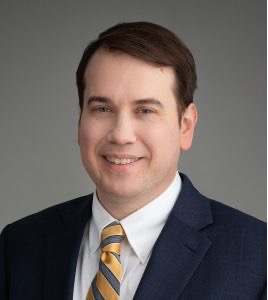Reducing the Burden of Idiopathic Hypersomnia: Diagnostic and Treatment Considerations - Baseline Assessment
David Plante, MD, PhD
Associate Professor of Psychiatry, University of Wisconsin-Madison
Medical Director, Wisconsin Institute for Sleep and Consciousness
 Dr. David T. Plante, MD, PhD, is an Associate Professor of Psychiatry at the University of Wisconsin-Madison. He also serves as the Medical Director of the Wisconsin Institute for Sleep and Consciousness. Dr. Plante received his medical degree from the University of North Carolina School of Medicine. He completed his residency in Adult Psychiatry at Massachusetts General Hospital/McLean Hospital and a fellowship in Sleep Medicine at Brigham and Women's Hospital in Boston, MA.
Dr. David T. Plante, MD, PhD, is an Associate Professor of Psychiatry at the University of Wisconsin-Madison. He also serves as the Medical Director of the Wisconsin Institute for Sleep and Consciousness. Dr. Plante received his medical degree from the University of North Carolina School of Medicine. He completed his residency in Adult Psychiatry at Massachusetts General Hospital/McLean Hospital and a fellowship in Sleep Medicine at Brigham and Women's Hospital in Boston, MA.
Dr. Plante is board certified in both psychiatry and sleep medicine. His research focuses on the pathophysiology and evaluation of disorders of central hypersomnolence, particularly hypersomnolence comorbid with affective illness. He is involved in various aspects of sleep medicine, including treatment for conditions like narcolepsy, sleep apnea, insomnia, and circadian rhythm disorders.
Lynn Marie Trotti, MD, MSc
Associate Professor of Neurology, Emory University School of Medicine
Associate Program Director, Sleep Medicine Fellowship at Emory University School of Medicine
 Dr. Lynn Marie Trotti, MD, MSc, is an Associate Professor of Neurology at Emory University School of Medicine. She also serves as the Associate Program Director for the Sleep Medicine fellowship there. Dr. Trotti completed her medical degree at Baylor College of Medicine in 2003 and holds a Master of Science (MSc) degree. Her clinical practice focuses on treatment-refractory hypersomnolence disorders and the multidisciplinary care of people with Parkinson’s disease. Her research is centered on the pathophysiology and treatment of central disorders of hypersomnolence, utilizing investigator-initiated randomized controlled trials and functional neuroimaging.
Dr. Lynn Marie Trotti, MD, MSc, is an Associate Professor of Neurology at Emory University School of Medicine. She also serves as the Associate Program Director for the Sleep Medicine fellowship there. Dr. Trotti completed her medical degree at Baylor College of Medicine in 2003 and holds a Master of Science (MSc) degree. Her clinical practice focuses on treatment-refractory hypersomnolence disorders and the multidisciplinary care of people with Parkinson’s disease. Her research is centered on the pathophysiology and treatment of central disorders of hypersomnolence, utilizing investigator-initiated randomized controlled trials and functional neuroimaging.